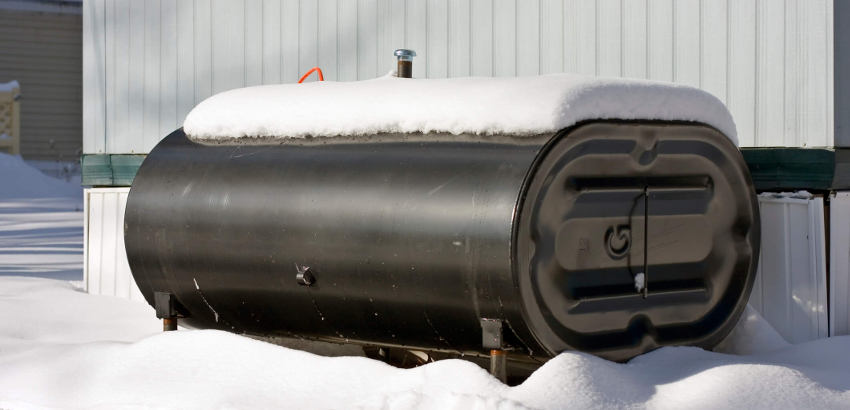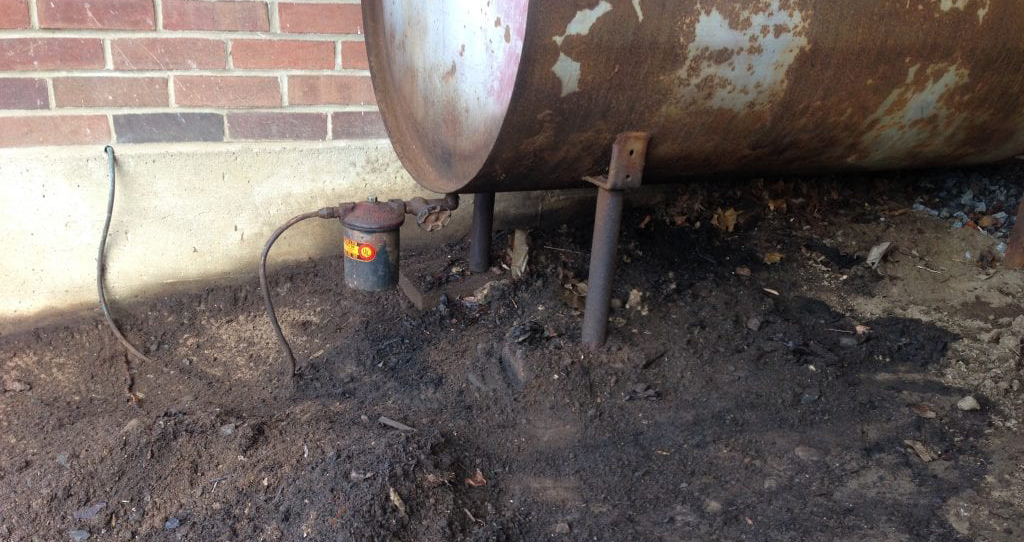If you’ve ever gone to a friend or family member’s house before, you might’ve noticed a heat pump. They are an external heating and cooling device that can provide both hot air and cold air for your home throughout the year. They convert the outside air into hot or cool air depending on the time of year. But this begs the question, is it better than heating oil? Well, we’re going to find out!
What’s a Heat Pump?
Heat pumps are external heating devices that typically sit by the side of your home or by the window. These devices connect to the home and don’t require any sort of liquid fuel. Instead, it draws the outside air and converts it to either warm air or cold air to provide heat or air conditioning depending on the time of year. It’s kind of like air conditioning but the exact opposite.
You can usually change these settings depending on the time of year. Often in either heating or cooling mode. Heating mode tends to be used in the fall and winter. While cooling mode is usually used in the Spring and Summer months of the year. During the winter, you’ll be kept nice and toasty but during the summer months, you’ll be nice and cool.

Similarly to heating oil tanks, there are different types of heat pumps. There are two main types of heat pumps, the most common of these tend to be Air-Source or Ground-Source. Both of these types of heat pumps will also pump air into your home differently and in their own way! Ground-Source tend to be more expensive but are usually more efficient when it comes to pumping air into your home. They draw air from the ground and push it through your home. While Air-Source air pumps will usually take outside air and pushes it into your home.
The Benefits of a Heat Pump
As long as the outside temperature is above freezing, heat pumps are very energy-efficient. They’re able to produce a natural form of heat and cooling that will significantly reduce your energy bill! Best of all, there is no requirement for fuel! You can simply set it up outside and it’ll do all the work for you!
Additionally, they are very versatile as they can be used for both heating and cooling! This allows you to use them year round! The air quality they produce as well is very good! So long as your neighborhood has no issues with air quality, you’ll have good quality air being pumped into your home! Air pumps also don’t contain carbon dioxide! So you don’t have to worry about CO being pumped into your home!
The Downsides of Using a Heat Pump
Unfortunately with their benefits, there are bound to be some negatives. The biggest downside being that they don’t produce as much heat as a furnace. Due to this, your home will not be as hot as it would be with heating oil. This makes it not as common as heating oil because it doesn’t heat up your home to the nice and toasty temperature that you might like it to be.
Heat Pumps will also tend to lose efficiency if the weather outside is colder outside! With temperatures that are below freezing, heat pumps will need to work much harder to heat up the home due to the very cold temperatures outside. Heat pumps tend to be unreliable in environments that have intense cold temperatures as well as erratic weather.
The Pros of Using Heating Oil
Heating oil is widely used across the northeast for a reason. It produces significantly more heat compared to a heat pump. It also has a much easier time keeping the home warm in cold environments. That is why heating oil is so common in Alaska and the Northeast, due to it’s ability to keep the home warm for a long period of time.

One gallon of heating oil can produce 138,500 BTUs (117,725 effective BTUs). BTU stands for “British Thermal Heat” and it’s used to measure heat energy usage. Specifically this is used when determining the amount of heat needed to raise the temperature. A heat pump is only able to produce 60,000 BTUs, which less than HALF of what heating oil produces. With heating oil, you’re effectively producing twice the amount of heat compared to a heat pump.
The Cons of Using Heating Oil
One of the biggest cons to using heating oil is that heating oil stinks. Now, this isn’t common but leaks are still possible and can cause damage to your home if there is ever a leak. If your tank leaks, you’ll definitely smell it. You’re going have to constantly check on your tank to ensure that there is no leak. But if your tank is leaking you MUST contact your local HVAC technician to come out and help fix the leak. Leaks can be damaging to the property and you belongings.

Oil prices also tend to be erratic and fluctuate often. They are often affected by global events and their pricings can skyrocket or decrease. Back in 2022, when Russia invaded the Ukraine, oil prices skyrocketed because we stopped buying Russian oil. However, it was the exact opposite back in 2020 at the start of the COVID-19 pandemic. Prices were at an all-time low! Sometimes prices even reached a dollar!
Finally, if you aren’t keeping track of your heating oil you are risk of runout. If you run out of heating oil, it can pose a serious problem for your home! If you run out of oil during the winter months, your pipes can freeze and burst causing significant damage to your home! Getting a Smart Oil Gauge will significantly help reduce this risk! With the use of a Smart Oil Gauge, you won’t have to worry about running out because the device will tell you how much oil is in your tank! However, if you do run out of oil, you can follow my guide in this article here to find out what to do next.
Conclusion
Despite not producing as much heat as heating oil, Heat Pumps are still a great tool to have! However, if you live in a place where winters are rough and tend to be very cold, then heat pumps are not for you. Heat pumps are usually more reliable in areas that tend to have more mild winters compared to the northeast where our winters tend to be pretty cold.
Where you live plays an important role into weather or not you should get a heat pump. If you live in Alaska or in the Northeast where the winters tend to be pretty cold, then sticking with Heating Oil is your best bet! In that situation, a heat pump will be less reliable than a furnace.
Heating Oil is overall more reliable and produces more heat than a heat pump. This will keep you warm during those really cold months. Your heating oil tank is also not reliant on what the outside temperature is. Meaning that your heat will always be consistent! In the northeast, your primary source of heat should be Heating Oil. But that doesn’t mean that you can’t have a heat pump as a backup!
Happy Heating,
Hunter



